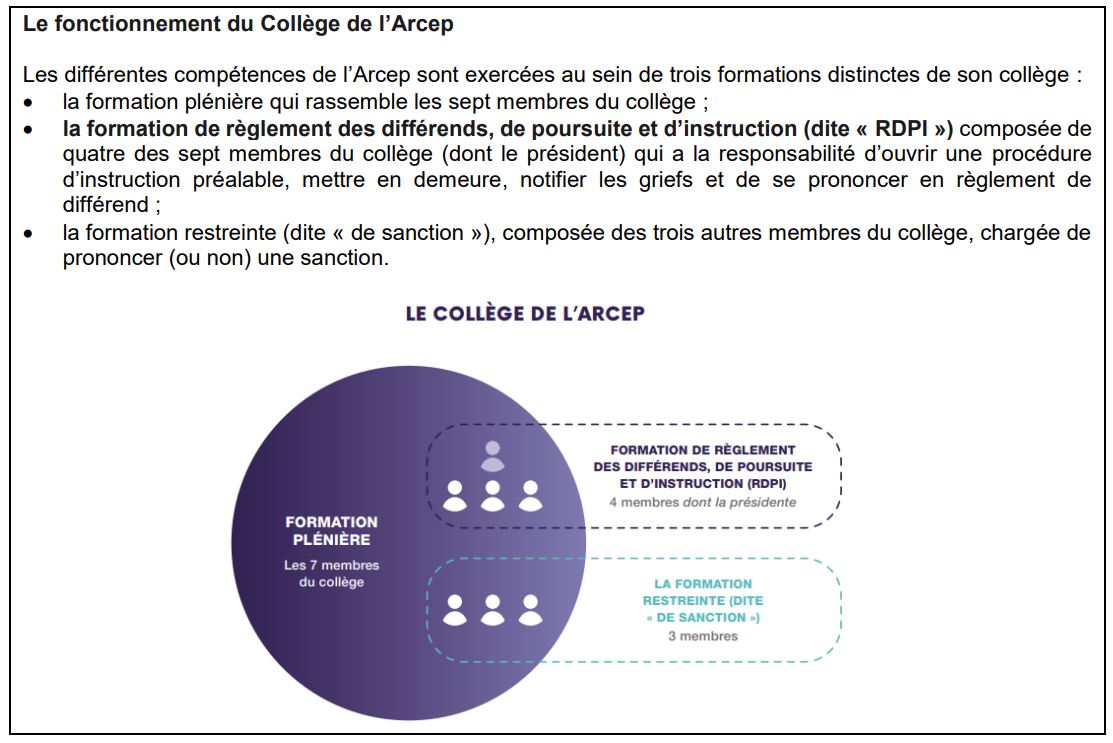In March 2024, the Arcep body responsible for settling disputes, legal proceedings and investigations (aka “RDPI”) received a request from Netalis – an electronic communications operator serving the business market – to settle a dispute it was having with the firm Orange, along with a request for provisional measures. This dispute pertains to the financial terms and conditions contained in the “GC- BLO” agreement for accessing Orange fibre local loop civil engineering infrastructures.
On 31 January 2024, Orange published an update on its website of its ”GC-BLO” reference offer for accessing its fibre local loop civil engineering infrastructures, which included the prices set to come into effect on 1 March 2024. This update was made pursuant to Arcep’s latest analysis decision on the civil engineering market[1], completed by its Decision[2] on the economic terms and conditions for accessing Orange local loop civil engineering.
RDPI body rejects Netalis requests for provisional measures
The provisional measures requested by Netalis include postponing the price increase to 1 March 2025, and staggering it over the entire 2024-2028 market analysis period.
In accordance with Article L. 36-8 of the French Postal and Electronic Communications Code (”CPCE”), Arcep has the power to order provisional measures that are strictly limited to what is required to handle an emergency situation, caused by an imminent and serious violation of the rules governing the electronic communications sector, in particular with a view to ensuring the continuity of network operations.
The RDPI body concluded that the requested provisional measures, whose effects would extend far beyond the four-month period that the Authority has to respond to the applicant, cannot be viewed as strictly limited to what is required to handle an emergency, as defined by CPCE Article L. 36-8. Arcep also noted that the evidence provided by Netalis did not clearly establish the imminent and serious nature of the violation being claimed.
RDPI body rejects the main request made by Netalis, due to a failure to negotiate
The main requests made by Netalis, which sought in particular to have a minimum advance notice period of 12 months for any contractual price change exceeding the established inflation rate of the previous 12 months, and to have these price increases staggered, according to their size, in several annual instalments over the entire market analysis period.
The Authority concluded that the main requests made by Netalis were inadmissible, due to a failure to negotiate with the other party. Indeed, the Authority issued a reminder that it is up to the applicant company to prove that it has engaged, effectively and in good faith, in negotiations with the opposing party before appealing to the Authority to settle a dispute. In this case, Arcep concluded that, in light of their number, tenor and temporality, the interactions between the parties prior to referring the matter to the Authority were not such as to prove any intention on the part of Netalis to enter into negotiations with Orange even though, and especially given that the letter cited by Netalis to substantiate Orange’s refusal to grant its requests was received after Netalis had referred the matter to Arcep.
[1] Cf. Arcep Decision No. 2023-2801 of 14 December 2023 on the definition of the market for wholesale access to physical civil engineering infrastructures for the deployment of electronic communication networks, on the designation of an operator enjoying significant power in this market and on the obligations imposed on that operator as a result.
[2] Cf. Decision No. 2023-2820 of 14 December 2023 amending Decision No. 2017-1488 of 14 December 2017 defining the economic terms and conditions for accessing Orange local loop civil engineering infrastructures.

Associated documents
- Decision n° 2024-1286-RDPI of Arcep dated 18 June 2024 ruling on a request for provisional measures filed by Netalis in the context of the dispute between it and Orange.
- Decision n° 2024-1429-RDPI of Arcep dated 25 June 2024 ruling on the main request for settlement of a dispute between Netalis and Orange.
